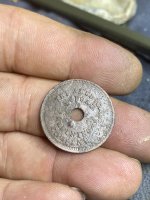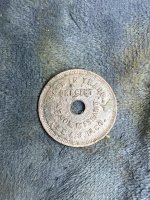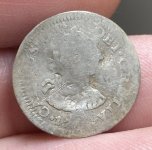Truth
Gold Member
Hopefully somebody has a token book. I found a token and it’s about the size of a quarter with a hole in the middle. On one side it says “Good in Trade One Cent At Commissary the A.S.P Co” opposite: “The American Sugar Refining Company”. It’s from New Orleans. All I know is they got sued in 1901 I couldn’t find any information on when it opened but what I can tell you this may be a rare is it talking because it wasn’t anywhere
Attachments
Last edited:







